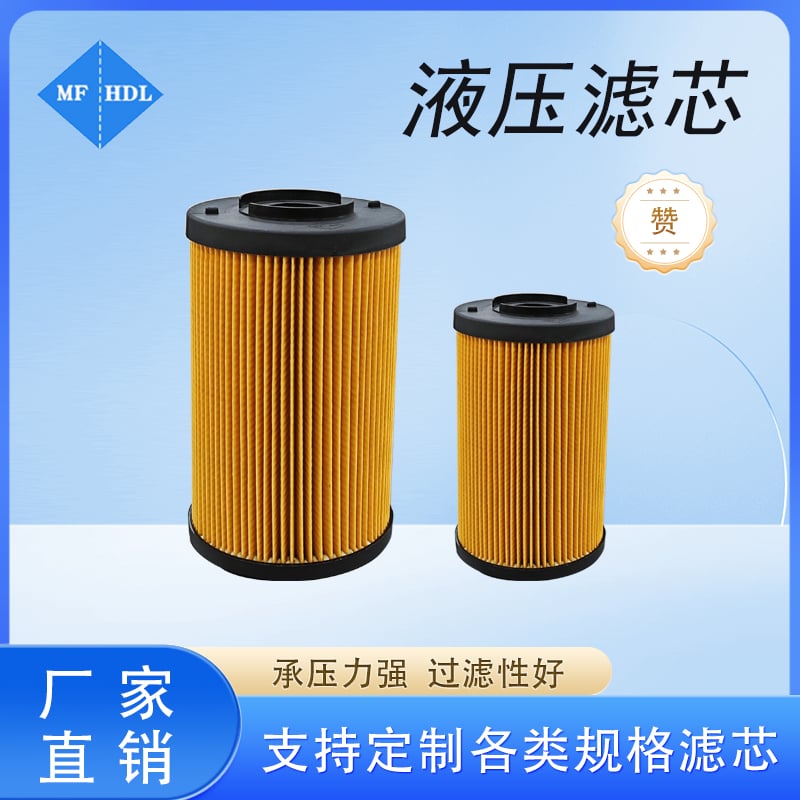Hydraulic filter elements are critical components in hydraulic systems, designed to remove contaminants and impurities from the hydraulic fluid. These filters help ensure the longevity and efficiency of the system by preventing damage to sensitive components. Here are some key characteristics of hydraulic filter elements:
-
Material Composition of Hydraulic Filter Elements:
- Media: The filter element is typically made from materials such as fiberglass, synthetic fibers, stainless steel mesh, or a combination of these. The choice of material depends on the required filtration level and the type of contaminants expected.
- Construction: The element may be pleated or wound to increase surface area and improve filtration efficiency.
-
Filtration Rating:
- Hydraulic filter elements come with specific micron ratings, which indicate the size of particles they can effectively filter out. Common ratings range from 1 to 200 microns, with finer ratings for more critical applications.
-
Flow Rate of hydraulic filter elements:
- The element must support the required flow rate of the hydraulic system without causing significant pressure drops. Higher flow rates necessitate larger filter areas or more efficient media.
-
Pressure Rating of hydraulic filter elements:
- Filter elements are designed to withstand the maximum operating pressure of the hydraulic system. This is crucial to prevent the filter from collapsing under high pressure conditions.
-
Temperature Resistance:
- They must operate efficiently within the temperature range of the hydraulic fluid, which can vary widely depending on the application (typically between -40°C to 120°C).
-
Capacity of hydraulic filter elements:
- The dirt holding capacity refers to how much contamination the filter can capture before it needs replacement. A higher capacity means less frequent maintenance.
-
Compatibility:
- Filter elements must be compatible with the hydraulic fluid being used, whether it's mineral oil, synthetic oil, water-glycol, or another type. Chemical compatibility ensures that the filter media does not degrade or react with the fluid.
-
Installation and Maintenance:
- Ease of installation and replacement is an important characteristic. Many filter elements are designed to fit standard housing units for easy swapping.
-
Durability and Longevity:
- High-quality materials and construction ensure that the filter element has a long service life, reducing the need for frequent replacements and minimizing downtime.
-
Efficiency of hydraulic filter elements:
- The effectiveness of a filter element in trapping contaminants while maintaining fluid flow is paramount. Beta ratio (βx) is a common measure of filter efficiency, indicating the ratio of particles upstream to particles downstream at a given size.
-
Cost:
- Cost-effectiveness is also a consideration, balancing performance with budget constraints. While high-efficiency filters might be more expensive, they can provide better protection and longer system life, potentially reducing overall costs.
Understanding these characteristics helps in selecting the appropriate hydraulic filter element for a specific application, ensuring optimal system performance and reliability.
Quote Inquiry
Contact us!

